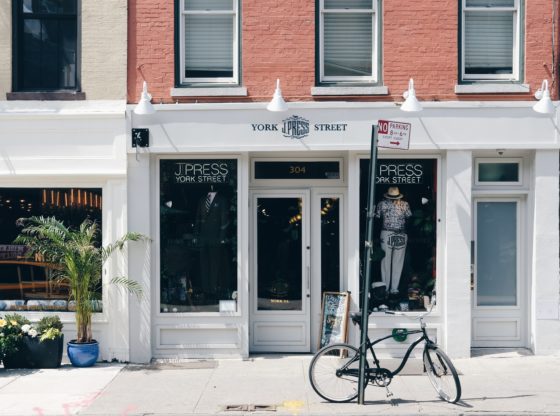Location, location, location. It’s an essential factor in choosing your dream home, but the physical site of your business can also seriously impact your bottom line.
How do you know if it’s time to pick up and move your business to greener pastures? Regardless of the kind of business you run — from a flower shop to a computer repair firm, a hair salon to a bakery — relocating your company means taking a look at the big picture, assessing the future of your business, and understanding how your vision is currently working, or not working, toward that future goal.
You might want to expand your product line or menu of services, or maybe you need a bigger, higher-quality space to accommodate more customers. Perhaps you just can’t live with a rent increase that’s beyond your budget. Whatever, the reason, it’s a big decision. Here’s a rundown of the various ways to identify whether you need a new location to help ensure continued growth.
Face-to-face access to customers
If you offer an online service or product that can be shipped (mostly) anywhere, you can run your business from anywhere that suits you. However, once you’ve established your online presence, you may also want a small brick and mortar space to showcase your products and a place where you can be the face of your brand.
Customers can finally interact with you and get to physically experience your product before they order online. Human connection is still important. If you do run an online business, it’s vital that your storefront can support the services needed to keep your business running — make sure the new location can get you up and running right away.
Visibility
Maybe your business used to run on appointments only, but now you’ve decided to allow walk-ins as well. Or perhaps you used to get a lot of customers from a nearby movie theater or tourist attraction which recently shut down. The more you rely on walk-in customers, the more you’ll need to be in an area that gets lots of foot traffic. This could be a space in a strip mall or a kiosk near a train or subway station.
Flexibility
In the beginning, you snatched up the first tiny, bare-bones space you could get your hands on because you just wanted to get things moving! But a few years in, you have specific ideas for the look and feel of your store. You want it to reflect your personality and your brand philosophy, but your current space isn’t set up to handle any renovations.
If you’re in a space with limitations, you may want a new spot that you feel comfortable in. Just make sure you’re allowed to make the modifications you need. What are the local zoning laws? What will your landlord allow you to do with the space? Be sure to find all this out before you sign the lease.
Space
How much do you need? Does your business require specific equipment that takes up a lot of space? Do you need room for your customers to move around in while they try out your product?
You want space that you, your staff, and your customers can feel comfortable in while they linger and browse. It just might be time to move on and move up to a bigger store — if it’s within your budget.
Rent cost
Which leads to the next determining factor — rent. It happens all the time: A splashy new commercial or residential project is constructed on your block, and now the rent price for all adjacent properties has skyrocketed. If you can no longer afford the rent, it’s time to find a new place for your business.
When you crunch the budget for your new location, keep all these factors in mind, and weigh how your new space may also help grow your business.
Suchi Rudra is a freelance writer who has reported on B2B and B2C topics for over a decade. Her work can be found in The New York Times, The Guardian, Slate, Huffington Post and many other publications. She covers business technology for Comcast Business.
